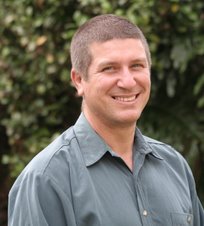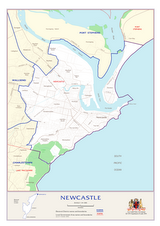Nuclear: the non-alternative
Some people may have read Dr Colin Keay’s article in today’s Newcastle Herald arguing for nuclear power.
Dr Keay is a long-time advocate of nuclear power, who has been writing similar articles supporting nuclear power for many decades.
Dr Keay’s argument relies on a long list of examples of countries already committed to the nuclear option. He begins with Canada, where, he argues, the citizens of Toronto are “quite comfortable with the fact that they have eight power reactors quietly producing electricity at Pickering, a locality just a few kilometres along the shores of Lake Ontario from the outskirts of Toronto”.
The truth is that Pickering’s nuclear facilities have been plagued by political, administrative, financial and technical problems and many Canadians are anything but comfortable with these reactors, as the following websites demonstrate:
Energy Probe
Sierra Club
Scratch beneath the surface of the other examples that Dr Keay uses to support his pro-nuclear argument, and you find similar errors and distortions.
He claims, for example, that adopting nuclear power enabled France to close its last coal mine. The truth is that France has such small reserves of coal that the industry was economically doomed whatever energy future the country chose. The French went nuclear not because they wanted to give up coal, but because they felt they had to: “no oil, no gas, no coal, no choice”, the French say.
Given what we now know about the potential of alternative renewable energy, whether the French really did have “no choice” is very much open to question.
But Australia – with its vast resources of wind, sun and space – does have choices other than the high risk, minimal return nuclear option. With active and positive government support, innovative industry approaches and creative research and development, we have the choice of making a just transition to energy-saving and alternative energy producing technologies that will allow us to kick the coal habit without going nuclear.
Despite a fear campaign to the contrary, the “Just Transition” strategy supported by The Greens is not about an immediate switch-off from coal. What we advocate is no further expansion of the coal industry, and its gradual replacement with renewable energy sources and technologies, including appropriate social and economic restructuring support by governments for people in coal-dependent communities, to provide the basis for a sustainable economy and jobs.
See Hunter Just Transition Fund.
The great Achilles heel of the nuclear industry, of course, is the problem of what to do with nuclear waste. Dr Keay assures us that “solutions are now in sight” for this. The problem is that these solutions have been just around the corner for as long as most of us can remember.
Even if Australia were foolish enough to take up the nuclear option, a nuclear plant would not be functioning for about ten years (in fact, the long lead time for development and construction is well known as one of the key financial risk factors with nuclear power plants).
We just can’t afford to wait that long for a technology that is too costly, too risky, and offers only a minimal contribution to meeting our energy needs or to solving the Climate Change challenge.
Nuclear is not a real option.
Read ACF President Prof Ian Lowe’s argument about nuclear power at Why Nuclear Power Won’t Stop Climate Change




